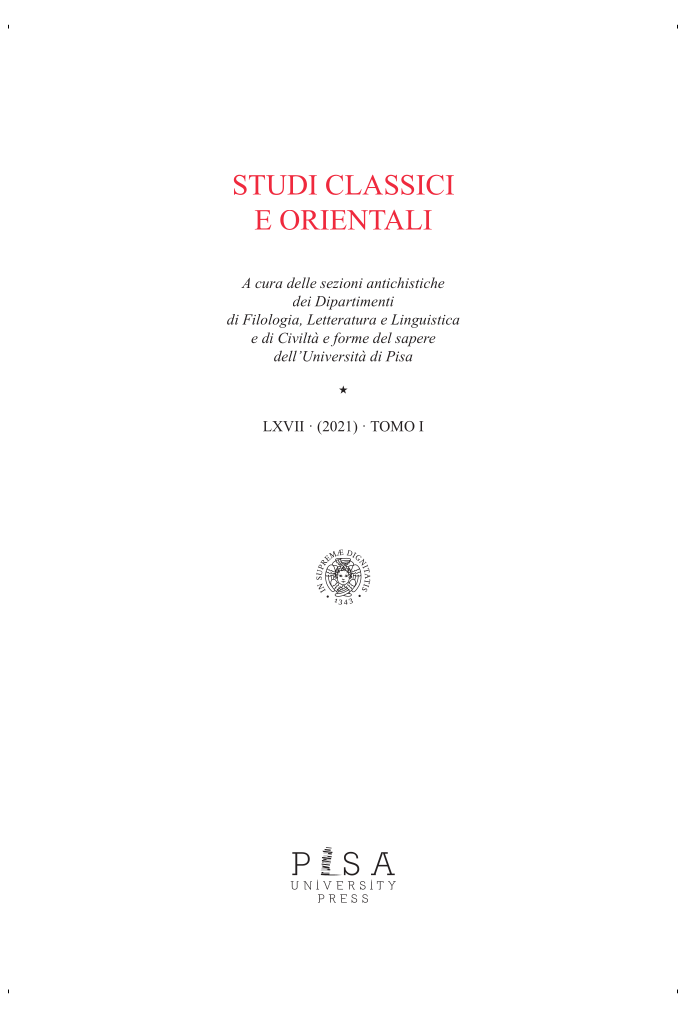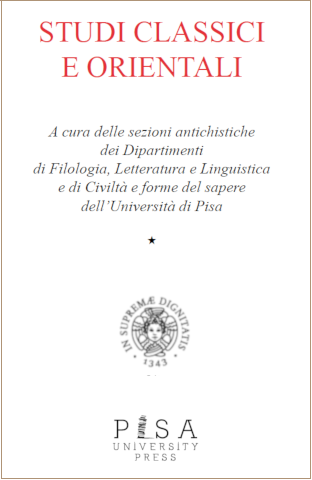Did the Sanskrit model bring «true enlightenment to European Scholars» when they analysed and classified the Bahuvrīhi compounds?
Parole chiave:
Sanskrit Indigenous grammar, History of Linguistics, Compounding rules and classifications, Pāṇini, W.D. WhitneyAbstract
Whitney (1884: 290) used the words quoted in the present title to refer to the choice made by most linguists to largely adopt the Sanskrit classification of compounds. Nonetheless, such praise is followed by a negative statement on the relevant ‘bizarre terminology’ this entails and above all by the statement that it «can hardly claim to be worth preserving». As is well known, in spite of Whitney’s opinion, such Sanskrit terminology – introduced by Bopp – is still largely current and the concept of ‘exocentric’ compound is officially based on Pāṇini’s rule 2.2.24: anekam anyapadārthe, which in fact teaches how to form bahuvrīhi compounds. However, such a rule and the Aṣṭādhyāyī analysis of compounding in general sometimes seem to have been misunderstood. As a consequence, Pāṇini’s assumed impact on the Western models of compounding has perhaps to be scaled back, even though recent theories seem to have independently attained lines of interpretation of the so-called exocentric compounds that could easily have been found in his grammar.



